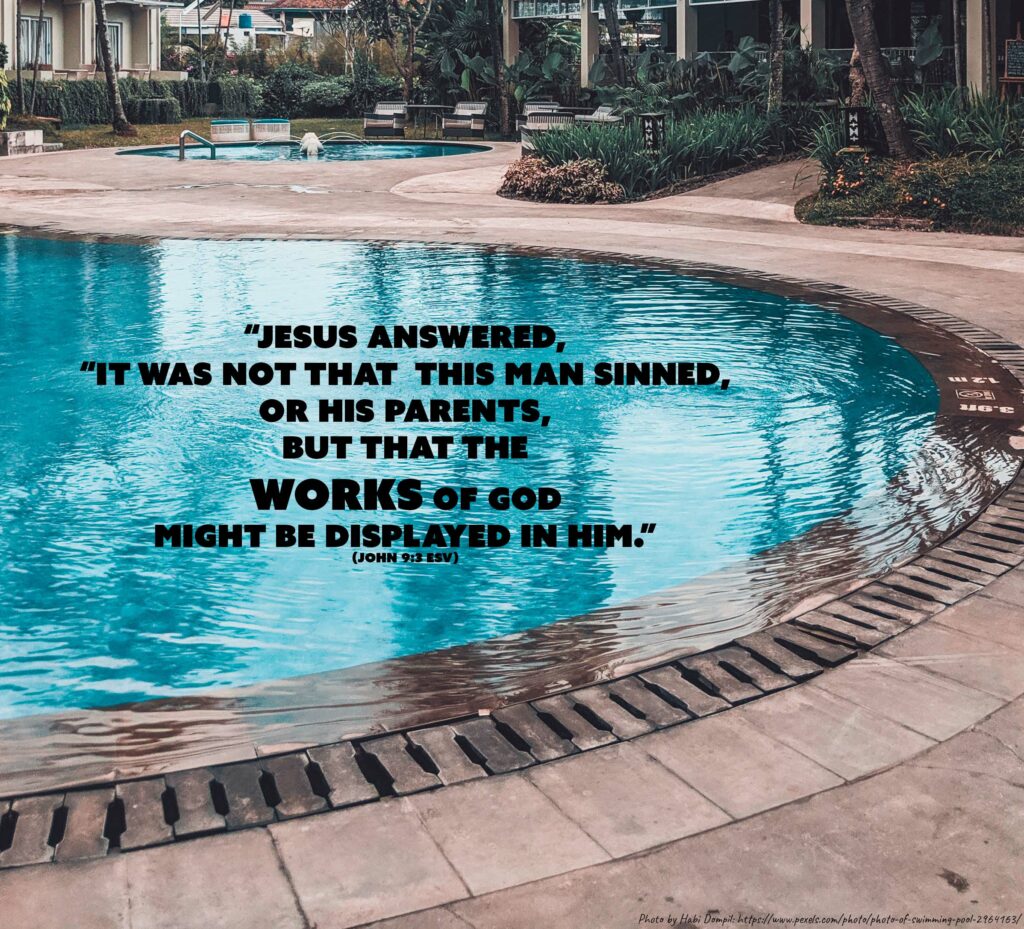2 minute read.

Daily Reading: 1 Samuel 20:1-21:15 ESV, John 9:1-41 ESV, Psalm 113:1-114:8 ESV, Proverbs 15:15-17 ESV
Daily Verse: “Jesus answered, “It was not that this man sinned, or his parents, but that the works of God might be displayed in him.” (John 9:3 ESV)
ERGON (2041): “To work; toil, as an effort or occupation, by implication an act.”[i]
God’s action.
Jesus healed a man blind from birth. His disciples want to know which one of his parent’s sins made him blind. In their minds, his disability resulted from someone’s sin, the man’s parents the obvious choice. Human thinking limits options.
God, the knower of all things, knew this moment in time would happen. Thirty-eight years before the disciples strolled by with Jesus, God began setting the scene. Day after day, passers-by watched the poor man suffer, then one miraculous day, they saw him healed.
Nothing anyone else did could save this man from his misery. But some divine spit made a miraculous mud. The ecstasy the man felt when he washed the dirt from his eyes, cool water dripping down his face, at first, his vision blurred from the water, but as it slid away, he could see for the first time in his life—what a moment he had.
Divine mud.
Only God would heal someone with mud made from spit. Jesus didn’t have to do anything but say the word, and the blind man would have sight. But instead, Jesus bends down and makes some mud. Watching God work made a more memorable impact. If Jesus didn’t get His hands dirty, people wouldn’t remember it as well.
Think about the best sermon you’ve ever heard. I bet the pastor used a visual to make his point. I know; the messages I remember the best had a visual cue. God knows He must get our attention; Jesus’s not afraid to get His hands dirty to make His point.
God’s work comes in many forms. As employees of the Big Guy, God works through us. Keeping our eyes on our mission: love God, love others help us stay focused and available. We can only fulfill the Great Commandment by staying connected to the source of love, Jesus.
[i] Strong, J., & Strong, J. (2010). The New Strong’s expanded exhaustive concordance of the Bible. Greek Dictionary of the New Testament (p. 102) Thomas Nelson

